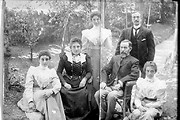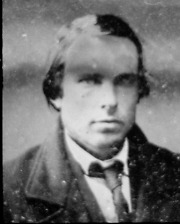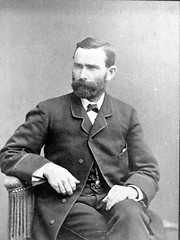 Hartlepool Sports & Leisure
Hartlepool Sports & Leisure
- Cinemas, Theatres & Dance Halls
- Musicians & Bands
- At the Seaside
- Parks & Gardens
- Caravans & Camping
- Sport
 Hartlepool Transport
Hartlepool Transport
- Airfields & Aircraft
- Railways
- Buses & Commercial Vehicles
- Cars & Motorbikes
- The Ferry
- Horse drawn vehicles
 A Potted History Of Hartlepool
A Potted History Of Hartlepool
- Unidentified images
- Sources of information
- Archaeology & Ancient History
- Local Government
- Printed Notices & Papers
- Aerial Photographs
- Events, Visitors & VIPs
 Hartlepool Trade & Industry
Hartlepool Trade & Industry
- Trade Fairs
- Local businesses
- Iron & Steel
- Shops & Shopping
- Fishing industry
- Farming & Rural Landscape
- Pubs, Clubs & Hotels
 Hartlepool Health & Education
Hartlepool Health & Education
- Schools & Colleges
- Hospitals & Workhouses
- Public Health & Utilities
- Ambulance Service
- Police Services
- Fire Services
 Hartlepool People
Hartlepool People
 Hartlepool Places
Hartlepool Places
 Hartlepool at War
Hartlepool at War
 Hartlepool Ships & Shipping
Hartlepool Ships & Shipping

Phippen, William
Although not born in Hartlepool, William Phippen served for many years on the ships of local shipping company Herskind & Co.; the following information has been very kindly provided by his great grand-daughter, Janet Hiscocks:
William Phippen was born on 6 December, 1840, in Bishops Hull, a village near Taunton in Somerset, to parents William (a tailor), and Ann Phippen (nee Bear). He was the third child in the family, having a brother, James Hewes, and a sister, Mary Ann.
William junior’s career in the Merchant Navy began on January 9th, 1856 when, aged just fifteen, he was Indentured to “John(?) Edwards, merchant of Bristol”. His first ship was the Monarch of Bristol, owned by John Edwards. Lloyd's Register of Shipping shows that the Monarch was a brigantine of 175 tons, 56 feet long, 'sheathed in yellow metal', and had been Barnstaple in 1839.
The Master, at the time, was J. Lever. William was certified as 'Only Mate' (OM), on 16 April 1861, at Bristol, at the end of his indenture and after he had passed the appropriate examinations. The rating OM meant that he was able to be engaged as Mate when there was no other Mate on board, or as Second Mate when there was a First Mate.
A document has been found of a voyage William made in 1869, as Mate of the 175 ton brig Ann Humphreys, of Whitehaven, William Pearson, Master. William joined this small sailing ship (oened by Thomas Humphreys of Whitehaven), at Newport, on May 8th, 1869. William's wages were £5 per calendar month and he received £5 in advance on entry. His monthly allotment was £2 10s. The voyage was from 'Newport to Seville and/or any port or ports in Spain, Portugal or the Mediterranean and back to a port of discharge in the United Kingdom', and was 'not to exceed nine months.' Rations for all the crew are stipulated though it states that 'substitutes may be given for any or all the above at the Master's option.' The crew is listed with their age, place of birth, previous ship in which they served with details of date and place of discharge, date and place of joining the ship, capacity, wages and date and place of discharge.
William entered the service of Hartlepool shipowners Herskind & Co. in 1874. In 1881 he was appointed as Master of the company’s brand new ship, the Miranda, built by Pearse & Co., at Stockton-on-Tees.
In 1888 he was appointed as Master of another of the company’s new steamers, the Ursa, built in the Hartlepool shipyard of Edward Withy & Co. In 1890 he took his elder daughter aged 18½ and her younger sister aged 14½ on board Ursa for a voyage to India and back, and a diary written by my grandmother Kate (always known as Cherrie) survives. They travelled by train from Bristol and sailed from Middlesborough on 12th December, 1890. The diary describes their various adventures and Cherrie's reaction to a different way of life, Sundays particularly seemed very strange. They spent Christmas in Bombay having passed through the Suez Canal where the ship went aground. They steamed to Calcutta and then home arriving in Gravesend on 26th February, 1891.
Documents relating to the Ursa have been found in the PRO namely the crew agreement for a voyage starting on 16 January 1892 from Dundee to Hull arriving on 19th April, 1892. The crew numbered thirty-five with six being engaged as sailors. Many of the crew had served on the Ursa previously and some on the Miranda. The cook Henry Thompson had his wife Alice on board as stewardess and they had both served on the Ursa before. There was a carpenter, a bos'n of lamps, four engineers, seven firemen and a messroom steward. John Robertson, one of the Able Seamen, was discharged at Aden on 24th February, 1892. A visit was paid to Bombay and another Able Seaman was engaged "within the terms of the agreement" on 15th March, 1892. A document survives recording an agreement for a voyage from the Tay to Newcastle-on-Tyne employing only seventeen crew members (home Trade only), and largely the same personnel; likewise a voyage from Tyne to Madras with an account of thirty crew members, although the crew was deemed complete with twenty-four hands all told. The Ursa departed on 18th August, 1892, from South Shields and returned to Dundee on 17th December, 1892, having called at Madras and Chittagong.
It was thought that at some point William Phippen, Master Mariner, retired from the sea, returning again in 1915 at the age of seventy five, to play his part in the First World War. However, there is evidence, including a newspaper report altered by a family hand, that he had not retired and therefore had remained at sea during the whole of his life since his apprenticeship in 1861. He commanded another of Herskind’s steamships, the Rowena, of West Hartlepool, but on 21st May, 1915, she was taken-over by the Admiralty and numbered H.M.T. 695.
A list of William's war time voyages written by Kate survives. He made a total of seven, to various ports in France and then a longer voyage calling at Malta, Mudros, Port Said, Huelva, Savannah, Galveston, Newport News, Falmouth, Rotterdam and back to Tyne. On the sixth voyage, to Malta again, he saw an enemy submarine sink a steamer. It then turned its attention on the Rowena and shelled her for 1½ hours dropping fifty shells around the ship. One piece of shrapnel fell on the bridge. The Rowena was carrying two motor boats, their guns and crews of sixteen to Port Said, and Captain Phippen ordered the guns to be turned on the submarine and fired eighty shells. The submarine gave up the chase but he could not say if it had been hit.
The agreement and account of crew for the seventh voyage has been found at the PRO. This voyage commenced at Garston, Liverpool, on 11th May, 1916, and had a crew of twenty-eight who came from all over the world. According to Kate's notes they called first at Malta, then Alexandria but they must have moored offshore as there are no official stamps between the Cardiff Customs House stamp and the British Consulate stamp in Port Said. There Joseph Cockrane was discharged due to illness viz. a whitlow; the engagement of Isa Ali was sanctioned as fireman and trimmer to replace Cockrane. In Aden a sailor, S. Leech, was discharged due to illness. The balance of his wages were paid to him and his discharge book and NHI card were deposited in the office of the Shipping Master at Aden. The voyage continued to Basra in the Persian Gulf, though Kate mentions a call at Henqum, a tiny island off the coast of Iran in the Straits of Hormuz. The Rowena seems to have spent almost two months in Basra and during that time Isa Ali was discharged due to illness and invalided to India, another sailor, Mr. J. Casey, the third Engineer and the Chief Engineer, Mr. F. Golightly, were also discharged due to sickness.
Rowena eventually left Basra on 16th September and arrived in Karachi on 24th September, when six new crew members were duly and correctly signed on. At some point, it is not clear where or when, a group of "seedies" were embarked on Rowena, numbering forty-two. “Seedies” are probably Arab seamen. One was landed at Muscat, the rest at Aden and Robert Chatfield, in charge of two Red Cross motor boats, was landed at Basra on 26th June, 1916. Two more crew were signed on in Port Said in October, and they appear to be gunners of some description. According to Kate's list the Rowena called at Algiers on 2nd November; the First Mate and an AB were discharged at Poplar on 23rd November, and on 2nd December two sailors were added to the compliment for the return to West Hartlepool, their fares to be paid back to London. On 8th December, 1916, the remainder of the crew, including the Master were discharged in West Hartlepool receiving the balance of their wages, though there was no figure for the Master. There is a note at the end of Kate's list "Took 695 to Hartlepool and gave up command November 1916, Rowena sunk by a submarine following voyage." William Phippen was issued with the British War Medal and the Mercantile Marine Medal on 11th December, 1922. He also held a certificate from the Belgian Relief Committee in recognition of the fact that he brought a cargo of grain to help feed the Belgians.
Related items :
 Herskind & Co.
Herskind & Co.
Fritz Herskind owned ships from the early 1870's. Herksind & Woods was formed in 1884 between Fritz and Peter Herskind and James Jabez Woods. The partnership was dissolved by mutual consent on the 20th August 1892. On 31st August 1892 the Company became known as Herskind & Co. with the main shareholders Fritz and his father Peter.
Five of Fritz's early ships were built by Matthew Pearse and two by Ropner. All of his subsequent ships were built in West Hartlepool and all appear to have been purchased new.
More detail »
 The Phippen Family
The Phippen Family
 Created by unknown
Donated by Janet Hiscocks
Created by unknown
Donated by Janet HiscocksThe Phippen family. The following information was very kindly supplied by Janet Hiscocks: "Although William's working career was spent sailing from ports in the North-East, the Phippen family remained in Bristol. My Granny, Cherry, on the right of the photo, told me that every Sunday evening when William was away the family gathered round the piano to sing "For those in peril on the sea". There were three other children who died young but the saddest death was that of their eldest son who was a Merchant Navy Apprentice and who drowned on his first voyage aged 16."
More detail » William Phippen (1)
William Phippen (1)
 Created by unknown
Donated by Janet Hiscocks
Created by unknown
Donated by Janet HiscocksWilliam Phippen, served for many years with Herskind & Co., Hartlepool.
More detail » William Phippen (2)
William Phippen (2)
 Created by unknown
Donated by Janet Hiscocks
Created by unknown
Donated by Janet HiscocksWilliam Phippen, served for many years with Herskind & Co., Hartlepool.
More detail »



